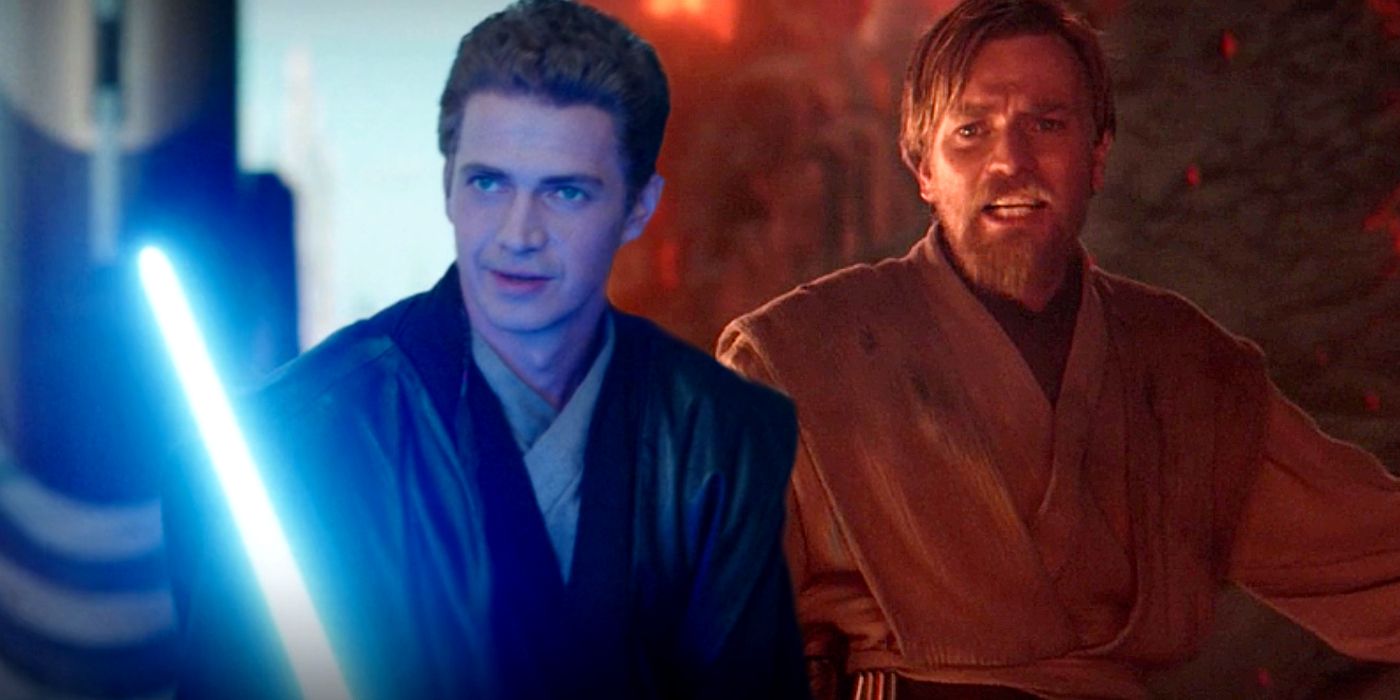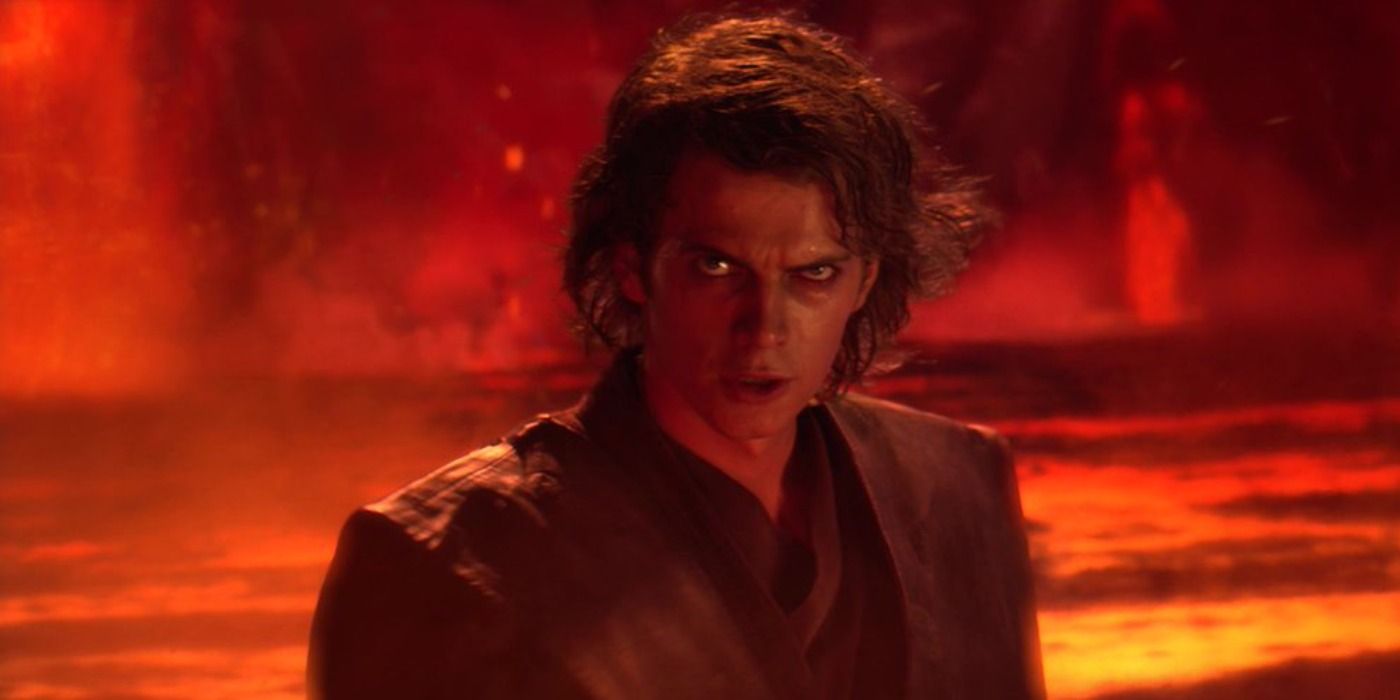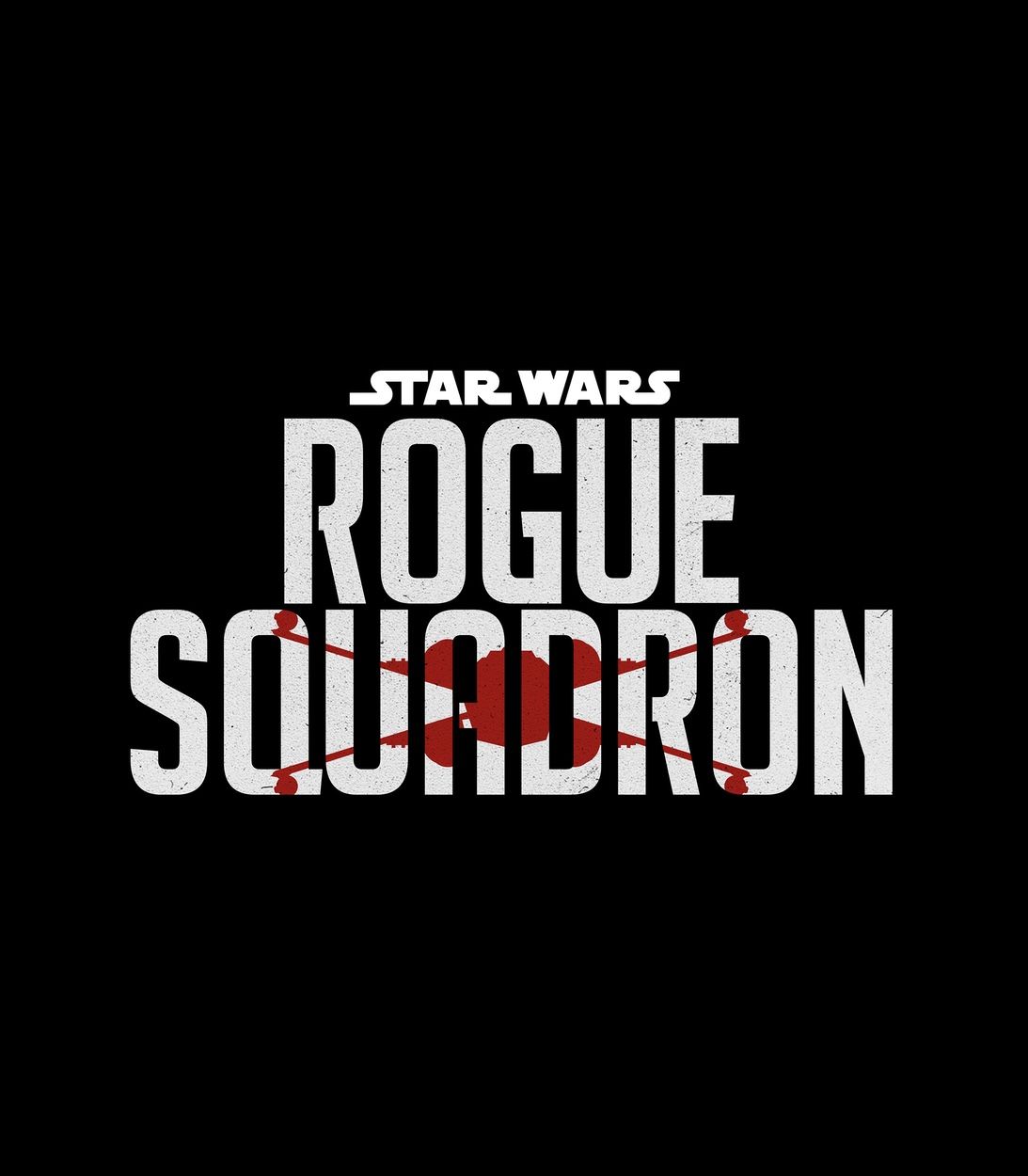Warning: Contains SPOILERS for Obi-Wan Kenobi, "Chapter V"
Anakin's fateful decision to challenge his master for the high ground on Mustafar during the Revenge of the Sith finale has always been a puzzling plot point, but Obi-Wan Kenobi has finally explained exactly why he took such a risk. Anakin Skywalker is notorious for his hot-headed temperament, and even arrogance. Yet Obi-Wan Kenobi "Chapter V" proved that there's more to his decision-making than pure egotism.
In a flashback sequence that interspersed the episode, viewers finally got to see actors Ewan McGregor and Hayden Christensen reunite as Obi-Wan Kenobi and Anakin Skywalker respectively. The scene revolved around lightsaber combat training, in which Anakin displayed his prowess and superior swordsmanship, repeatedly coming close to victory, even as a padawan learner. However, for all his clear skill and ability, it was Obi-Wan who eventually came out on top in the encounter.
Obi-Wan's victory is not only significant in the context of the episode, but also for the way that it foreshadows the tragic events of Return of the Sith. After beating his apprentice, Obi-Wan chides, "You're a great warrior Anakin, but your need to prove yourself if your undoing." This not only provides a valuable lesson for the padawan, but also explains both why he felt he could challenge Obi-Wan successfully on Mustafar, despite his clear advantage, and why it was always destined to end in failure. Where another fighter might have weighed up his options before pursuing a different strategy, Obi-Wan's jibe that "it's over" because of the topographical advantage sparks that same need to prove himself. In the end, Obi-Wan's prediction came true.
While it would be easy to dismiss this aspect of Anakin's character as hubristic, it actually reveals a tragic insecurity at his core. It's the same tendency that saw him charge into combat against Count Dooku in Attack of the Clones, leading to his partial dismemberment. Even while he is channeling all the rage and hatred of the dark side in his battle against Obi-Wan, it is his determination to be seen as something other than small and powerless that ultimately leads to his downfall. While his fate in Revenge of the Sith is the most graphic example of this, the scene in Obi-Wan Kenobi poignantly foreshadows what's to come.
Many of the Star Wars spin-off projects have been fairly criticized for providing background to characters and stories that didn't need further explanation. However, with this exchange in Obi-Wan Kenobi, the show has proven the value of revisiting the past. By tacitly explaining the character trait that's at the root of many of Anakin's most tragic moments, the series not only adds greater depth to his character, but more emotional weight to what was already one of the most significant moments in the entire saga. Revenge of the Sith's climax was already heartbreaking, explained by a lust for power and vanity. Now, thanks to Obi-Wan Kenobi, it's clear that there was actually something much more deep-seated behind Anakin's decision.
Obi-Wan Kenobi continues Wednesday on Disney+.
Want more Obi-Wan Kenobi articles? Check out our essential content below...
- Obi-Wan Kenobi Cast Guide: Every New & Returning Star Wars Character
- Why Obi-Wan Kenobi Is Called "General"
- Why Obi-Wan Struggles To Use The Force In Kenobi
- Did Obi-Wan Kenobi Just Confirm Mace Windu Is Dead?
- Obi-Wan Kenobi Episode 2's Veteran Cameo Explained
- Why Obi-Wan Can’t Talk To Qui-Gon Jinn's Force Ghost
- Every Jedi Alive During Obi-Wan Kenobi's Timeline



